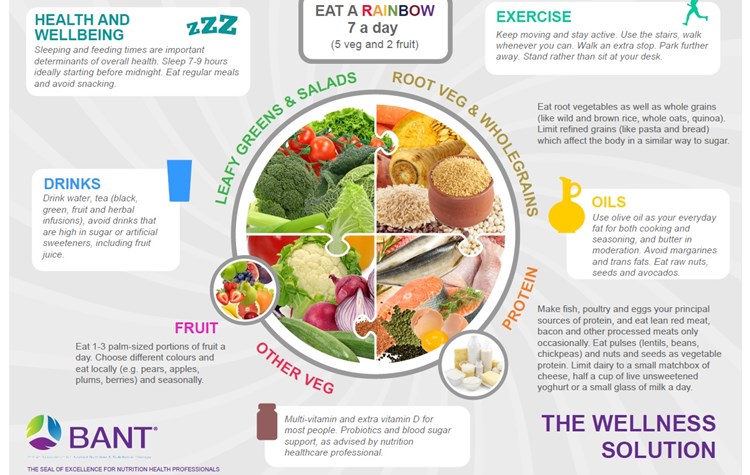
It is possible to maintain a healthy weight for many reasons. You could be suffering from a health problem, lack of energy, or any other reason. Whatever the reason, be focused on a meaningful goal in your body and for your health. You'll be amazed at the benefits of achieving your ideal weight. Keep reading to discover the best ways to keep a healthy body weight.
Everyone has their own definition of healthy weight. To help you determine your ideal body weight, you can use a BMI (body mass index) or waist circumference. Your exercise and other factors will be taken into consideration by your doctor. A healthy diet and regular exercise will help to reduce the risk of many diseases. It will also help to avoid many accidents and infections by following a healthy weight program.

The Physical Activity Guidelines of Americans recommend that at least 150 minutes be spent doing moderate to vigorous exercise per week. Two days a weeks should be dedicated for strength-training. The ASN offers a 3-part webinar series to explain the science behind the new guidelines and how they can impact your health. For more information about the latest recommendations, check out the Nutrition Source website. Sign up for their newsletter to learn more about exercising and the health benefits it has.
You can still be healthy regardless of your age and gender. In fact, there are people who have large midsections and a healthy BMI. Your healthy weight will be determined by your height and age as well as your muscle mass. Another helpful method to calculate your ideal bodyweight is the waist-to hip ratio. You must also dispel the myths around what constitutes a healthy body weight if you want to live an active, healthy life.
A healthy weight range for men and women depends on your height and body type. The BMI, although there is not a universal "healthy weight", is used to guide you in determining your healthy weight. Many people have a unhealthy weight. This is despite what people believe. It all depends on how tall you are, your lifestyle and body type. Your body fat is measured by your BMI. A high-fat individual may be at higher risk for developing heart disease than someone with a lower body weight.

Healthy weight is a combination of your mind and body. To determine whether you are at higher risk for heart disease, type 2 diabetes and stroke, your body mass index will be used. Healthy weight can also be affected by stress levels and mental health. However, the CDC recommends you to focus on the CDC’s website as much as its social media pages.
FAQ
What is the best work out for men aged 40+?
The best workout for older men usually increases energy and stamina.
It is important for you to know that over 40s experience a reduction in testosterone which can lead to lower sex drive.
You can still exercise, however. There are many studies that show regular aerobic exercise can raise testosterone in some men.
You can improve your sexual performance by starting an aerobics program.
How many calories should I consume daily?
The exact amount varies depending on the person. On average, you need 2000 to 2500 calories per days. It's important to assess your life style, gender, age and height in order to determine how much calories you need.
What food should I avoid if I want to lose weight
Avoid trans fats. Trans fats raise LDL (the bad) cholesterol levels and reduce HDL (the good) cholesterol levels.
Trans fats may be found in deep-fried, fast food, packaged bake goods, snack cakes, or other processed food.
These unhealthy fats also contribute to inflammation, leading ultimately to heart disease or diabetes.
Avoid foods that are sweetened with artificial sweeteners. Artificial sweeteners increase the risk of getting cancer.
These chemicals are used in everything from soft drinks to chewing gum to candy bars. They can also be found in other foods like meat, poultry, and eggs.
Artificial sweeteners are saccharin (cyclamate), sorbitol and aspartame.
The American Heart Association recommends avoiding these chemicals because they may damage DNA in cells.
What's a good routine for a daily workout?
Regular exercise is key for staying in shape. It doesn't make a difference what kind of activity you choose. As long as you do it often, it will be beneficial. Consistency is the key. It is important to stay consistent in order to get results.
Start by doing small amounts of daily physical activity (like walking). Then gradually increase the time spent exercising until you spend 30 minutes a day working out. This could be running, biking, swimming or weight training.
You should try to ensure that you exercise most days of the week. If you have a reason to miss a session, don't skim it.
When exercising outside, make sure you have the right clothing and shoes. Weather conditions can also affect your ability and safety to exercise.
When you exercise, drink plenty of fluids. Drinking alcohol at this time can lead to dehydration. Caffeinated beverages such as tea, coffee, and cola should be avoided. They can give you energy, but will also dehydrate.
It's common to feel tired after your first workout. But if your workouts are continued, you will feel more energetic.
Do Men Need A Gym Membership?
A gym membership is not necessary for men. If you sign up for a gym, however, your money will be much more valuable.
Many gyms offer free trials that let you try the facilities before you pay any fees.
The gym is free to use whenever you wish, and there are no fees. You can cancel your membership as soon as you decide whether you love or hate it.
Statistics
- 10 pounds in a month is likely during a lean bulking phase, especially for beginners. (muscleandstrength.com)
- According to the American Heart Association, blood pressure should be checked at least once every two years, beginning at age 20. (my.clevelandclinic.org)
- By John Thompson Take a whopping 38% off a set of PowerBlock Pros. (menshealth.com)
- Get free shipping and 25% off today. (healthline.com)
- An estimated calorie range for moderately active adult males falls between 2,200 to 2,800 calories per day, depending on age. (eatright.org)
External Links
How To
What nutrients does a person need every day?
Daily nutrition is essential for men's healthy growth. The body requires vitamins, minerals, proteins, carbohydrates, fats, water, fiber, and other essential elements.
You also need specific nutrients for different times in the day. To give you an example, the body uses energy it receives from food to make hormones and antibodies. When you awake, protein is used by your body to build muscles or repair damaged tissue.
Your body will burn fat at night and store the extra energy as a form of glycogen. Your body requires fewer calories, but still needs enough nutrients. If you feel hungry, you may consider having a snack during the evening.
When you work out, you need adequate levels of carbs and protein to fuel your muscles. If you train hard, you may experience muscle soreness after exercising.
To prevent this from happening, you need to consume carbs or protein within two hours. To get energy from glucose, your body will start to degrade stored glycogen.
Additionally, it is important to eat protein right away after your workouts are over. This will prevent muscle tissue from being damaged while you sleep.
Your body produces lactic acid during high levels of physical activity. The body produces lactic acid when there is too much activity. This can cause fatigue. Eat foods high in carbohydrate, such as fruits, vegetables, to avoid this.
Carbohydrates give your body the energy it needs to recover from strenuous exercise.
You may also want to include lean meats and fish, as well as yogurt, cheese, yogurt, beans and nuts in your diet.
All of these foods contain high-quality protein. Protein helps to repair and grow muscles. It provides amino acids that your body needs in order to produce sexhormones and testosterone.
For healthy skin, hair and joints, it is important to eat enough fats. Healthy men should consume between 20% to 35% of their daily caloric intake from fat.
Fat is good for your heart and helps you fight cancer. It is essential for proper brain function.
Most of the fat you need can be obtained from vegetable oils, including sunflower oil (or soybean oil), peanut oil, peanut oil, soybean oil, and peanut oil.
These oils are high-in monounsaturated, unsaturated fatty acid (MUFAs). MUFAs lower cholesterol and decrease inflammation. They protect cells against damage from free radicals.
Saturated Fats (SFAs), which are mostly found in animal products like meat, butter, and dairy products, include LDL ("bad") cholesterol. SFAs increase LDL ("bad") cholesterol, and increase triglycerides. They promote weight gain as well as belly fat.
Plant-based fats such as vegetable oils, seeds, nuts and grains contain polyunsaturated (PUFAs). PUFAs help improve cardiovascular function, and lower inflammation. They are also good for controlling blood sugar and cholesterol.
Erectile dysfunction can often be a problem for men who have low HDL ("good") levels of cholesterol. Saturated fats are a major source of bad cholesterol. This lowers good cholesterol.
Because of the high levels of nitrates in red meat and pork, men with prostate problems may eat more of them. If cooked at high temperatures, the nitrates become nitrosamines. These compounds cause cancer.
Nitrites and other harmful chemicals are common in processed meats. Avoid them.
The American Heart Association recommends limiting red meat intake to two meals per week. Instead, opt for poultry, fish, legumes and tofu as well as whole grains bread and cereals.